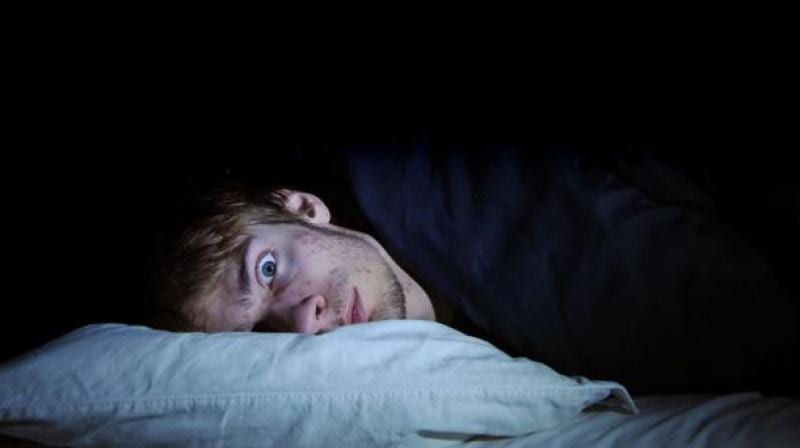By Michelle Vasiliu, Author of My Happy Sad Mummy.
In 2007, when I was 40 years old, I experienced my first manic episode. I was duly diagnosed with bipolar one.
Knowing what I now know about my condition, it is highly likely those sporadic periods of frenzied activity, little sleep and incredible optimism I’d experienced in between debilitating depressive episodes during my teen years, were actually hypomanic episodes. In other words, my original diagnosis of clinical depression was, in all likeliness, incorrect. The extreme mood swings I had been experiencing for over 25 years were symptomatic of bipolar affective disorder.
So what changed in 2007? What brought on this full blown manic episode which saw me carted off in an ambulance, screaming and kicking to the local psychiatric hospital where I was “sectioned” for 6 weeks?
Three days of next to no sleep.
I knew something was happening to my body that I hadn’t experienced before but I wasn’t sure what to do about it. My eyes wouldn’t focus properly, my racing thoughts became more and more erratic and I had so much energy it was impossible to slow down, let alone sleep. In fact, sleep was the last thing on my mind. And this is why everything went so terribly wrong.
I didn’t know then that prolonged periods of insomnia can bring on a manic episode, even in people who have no psychiatric history. I wasn’t aware that in war times, around the world, prisoners have been tortured by denying them sleep.
In my sleep deprived state, my wired, crazed mind was euphoric. I resisted sleep with a vengeance and ignored the frantic pleas of my confused and frightened husband begging me to “go to bed.”
As the days went on I became more and more irrational, to the point of being delusional. This is when my husband, with no idea of how to make matters right, called the crisis assessment team, who in turn, made the decision to send me to the aforementioned psychiatric hospital for observation and further assessment.
So what did I learn from this experience in relation to my condition?
At the time, nothing. As obvious as it now seems, in the early days of my bipolar diagnosis, no-one, not even the so-called experts treating me, could see how lack of sleep was so integral to my manic state.
It took many years in fact to recognise lack of sleep in combination with excessive activity and the inability to “slow down” as the number one trigger for me in terms of bringing on a manic episode.
Today, having a regular sleep routine is perhaps one of the most important things I can do for myself in order to stay well. When I find myself struggling to relax or stop those racing thoughts I have strategies I now put into place to stave off a manic episode.
These are: I prioritise all activities and only do one thing at a time. I participate in relaxing, quiet pastimes like reading, going for a swim, listening to mindfulness/meditation recordings and walking my dog. I also get in touch with my psychiatrist, and if warranted, slight changes to my medication are made. And perhaps, most importantly, I aim to get a restful sleep come my bedtime. If sleep eludes me, I take a sleeping tablet (I have a small supply in my bedside table for emergencies only).
It is now 15 months since my last hospitalisation, after a total of 18 admissions over the course of 28 months. During these admissions I alternated between suicidal bouts of depression and manic episodes where I was quite literally, “crazy.” I trialled many medications, which had little or no effect. In the end I had a full course of ECT but it was the one-on-one sessions I had with my outreach worker who made the biggest impact in terms of helping me to get well and stay well. She taught me to look for my triggers and warning signs prior to me becoming unwell.
These days, I do all I can to stay physically and mentally healthy. I try to lead a balanced life by letting go of the stressors in my control. I take my medication religiously. Every week, I attend a mental health course (Building Resilience) run by two psychologists where participants explore their mental health issues in a safe and supportive setting. And lastly, I pay close attention to my triggers, in particular, a sustained period of little or no sleep and/or a deviation in my regular sleeping routine. By taking action quickly and employing the strategies I have outlined above, I have managed to remain stable for the longest period of my adult life. It is a state of wellness I hope to hang onto for as long as possible.


